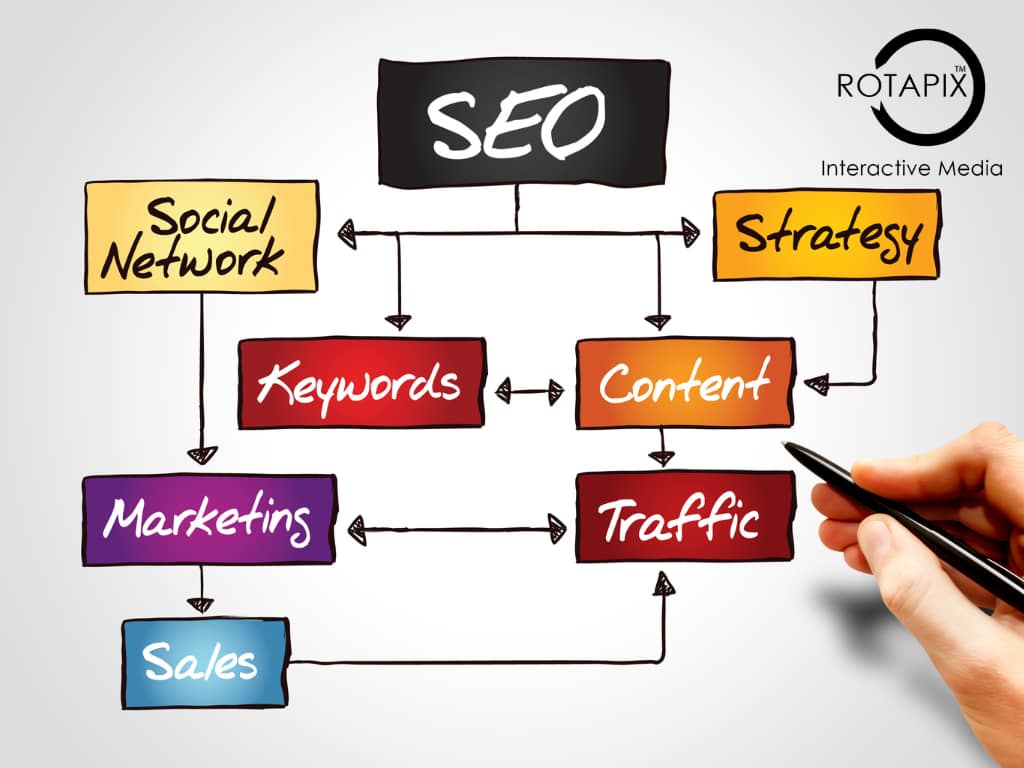In the ever-evolving world of digital marketing, content stands as a cornerstone of effective Search Engine Optimization (SEO). Its pivotal role cannot be overstated; quality content serves as the foundation upon which all SEO companies strategies are built. Search engines like Google continually refine their algorithms to reward websites that offer valuable, relevant, and high-quality content, aiming to improve the user experience by directing them to the most informative and helpful resources online.
Quality content directly influences search engine rankings by engaging readers, reducing bounce rates, and encouraging sharing and backlinking from other sites. These factors signal to search engines that the content is authoritative and valuable, which in turn boosts the website’s visibility in search results. As a result, a well-crafted content strategy becomes indispensable for any business looking to improve its online presence and attract more organic traffic.
Understanding SEO and Content Integration

Defining SEO-Friendly Content
SEO-friendly content is specifically designed to rank well in search engine results pages (SERPs). It possesses several key characteristics that make it favorable to both search engines and users. Firstly, it’s highly relevant to the queries of the target audience, incorporating keywords naturally without compromising readability. It’s also comprehensive, providing thorough answers to user questions, and is structured in a way that makes it easily digestible for both readers and search engine crawlers. This includes the use of headings, subheadings, and bullet points to break up text and highlight key points.
The Relationship Between Content and SEO Rankings
Search engines use sophisticated algorithms to crawl, index, and rank content based on its relevance and authority. High-quality content that is regularly updated signals to search engines that your website is a valuable resource, deserving of a high ranking. The use of relevant keywords and phrases within the content helps search engines understand the topic, while backlinks from reputable sites serve as endorsements, further increasing the content’s authority and its potential to rank well.
Components of Effective SEO Content Strategy
Keyword Research for Content Creation
Keyword research is the first and most critical step in creating SEO-friendly content. It involves identifying the terms and phrases that your target audience is searching for. Tools like Google Keyword Planner, Ahrefs, and SEMrush can help uncover these keywords, including their search volume and competition level. Integrating these keywords naturally into your content helps match user intent and improves your content’s visibility in search results.
Content Types and Formats
Diversifying the types and formats of content on your website can significantly enhance your SEO efforts. Blogs and articles are essential for deep dives into specific topics, offering opportunities to incorporate a wide range of keywords. Infographics, on the other hand, provide visual summaries of complex information, making them shareable and engaging. Videos can explain intricate subjects in an easily digestible format, keeping users on your site longer. Each content type has its unique advantages and can be optimized for search engines to attract different segments of your audience.
User Intent and Content Optimization
Tailoring content to meet user intent involves understanding why users are searching for specific topics and what they hope to find. Content should not only incorporate the right keywords but also answer questions, solve problems, and provide value in a way that resonates with the target audience. By aligning content with user intent, you significantly improve the chances of ranking well in SERPs, as search engines prioritize content that best satisfies the searcher’s needs.
Crafting a successful SEO content strategy requires a deep understanding of how quality content influences search engine rankings and the integration of SEO principles into content creation. By focusing on the needs and questions of the target audience and optimizing content accordingly, businesses can create valuable resources that rank well in search engines and attract more organic traffic.
Content Creation Best Practices
Writing High-Quality, Engaging Content
Creating content that captivates and retains reader interest is paramount for any successful SEO strategy. High-quality content is informative, well-researched, and engaging, making it compelling for readers to stay, absorb, and interact with. To achieve this, focus on crafting narratives that resonate with your audience, using relatable examples and storytelling techniques. Break complex ideas into digestible pieces, and always aim for clarity and conciseness. Encouraging reader interaction through questions and calls-to-action can also boost engagement and time spent on your site.
Ensuring Content Originality and Value
The internet is saturated with content, making originality and value crucial for standing out. Conduct thorough research to find unique angles on topics, even those widely covered. Use original research, expert interviews, and personal insights to add depth and authenticity to your content. Plagiarism detectors and fact-checking resources can help ensure your work is both original and accurate, bolstering your site’s credibility and authority.
Optimizing Content Structure for SEO
The structure of your content plays a significant role in both user experience and SEO. Use headers and subheaders (H1, H2, H3 tags) to organize content logically and include relevant keywords naturally. This not only improves readability for users but also helps search engine crawlers understand and rank your content. Meta titles and descriptions should be compelling and keyword-rich, accurately summarizing the page content to improve click-through rates from search results.
Advanced Content Optimization Techniques
Semantic SEO and Topic Clusters
Semantic SEO involves optimizing content for meaning and context, not just specific keywords. This approach leverages related keywords, synonyms, and topics to build a comprehensive network of content that establishes topic authority. Creating content clusters around core topics, with a pillar page that links to more detailed subtopic pages, signals to search engines the breadth and depth of your knowledge, potentially boosting your rankings.
Optimizing for Featured Snippets and Rich Answers
Featured snippets and rich answers appear at the top of SERPs and provide quick answers to user queries. To optimize for these, structure your content to directly answer potential questions, using bullet points, numbered lists, or concise paragraphs. Including the question as a subheading and immediately following it with a clear, direct answer can increase your content’s chances of being featured.
Voice Search Optimization
With the rise of digital assistants, optimizing content for voice search is becoming increasingly important. Voice queries tend to be longer and more conversational than text searches. Incorporate long-tail keywords and phrases that mimic natural speech into your content. Structuring content in a question-and-answer format can also align with the typical format of voice searches, improving visibility in voice search results.
The Role of Analytics in Content Optimization
Tracking Content Performance
Utilizing analytics tools is essential for understanding the impact of your content. Metrics such as page views, bounce rate, and average time on page can provide insights into how engaging your content is. Tools like Google Analytics and Search Console can help track these metrics, alongside the performance of specific keywords and the overall visibility of your content in search results.
Iterative Content Improvement
The insights gained from analytics should inform an ongoing process of content refinement and improvement. Identify pages with high bounce rates or low engagement and explore ways to enhance them. This might involve updating information, improving readability, or incorporating additional keywords. Regularly updating content not only keeps it relevant but can also signal to search engines that your website is actively maintained, potentially boosting rankings.
Maintaining Content Relevance and Freshness
Content Auditing
Regular content audits are essential for maintaining the accuracy, relevance, and effectiveness of your website’s content. An audit involves systematically reviewing all the content on your site to identify areas that need updating, optimization, or removal. This process helps ensure that your content remains accurate, engaging, and in line with the latest SEO practices. During an audit, pay special attention to outdated information, underperforming pages, and opportunities to enhance content with new research, multimedia elements, and keyword integration.
Content Updating Strategies
Keeping your content fresh and up-to-date is vital for both user engagement and SEO. Here are several techniques for refreshing your content:
- Updating Facts and Data: Regularly review your content to update any outdated statistics, research findings, or references to ensure accuracy and reliability.
- Adding Recent Examples: Incorporate new examples, case studies, or success stories to make your content more relevant and relatable to the current context.
- Improving SEO Elements: Optimize existing content by refining title tags, meta descriptions, and headers. Incorporate new keywords based on the latest keyword research to reflect evolving search trends.
- Enhancing Readability and Engagement: Break large blocks of text into shorter paragraphs, add bullet points or numbered lists, and include images or videos to improve user engagement and time on site.
- Internal Linking: Update content with links to newer articles or pages on your site to boost internal linking, which can enhance site navigation and SEO.
Implementing a regular schedule for content updates—not just for individual pages but for your site as a whole—ensures that your content stays dynamic and search-engine friendly.
Conclusion
The role of content in achieving SEO success cannot be overstated. High-quality, engaging, and up-to-date content is the cornerstone of any effective SEO strategy, directly influencing search engine rankings, user engagement, and overall website performance. As search engines continue to evolve, prioritizing content that meets and exceeds user expectations becomes increasingly important.













